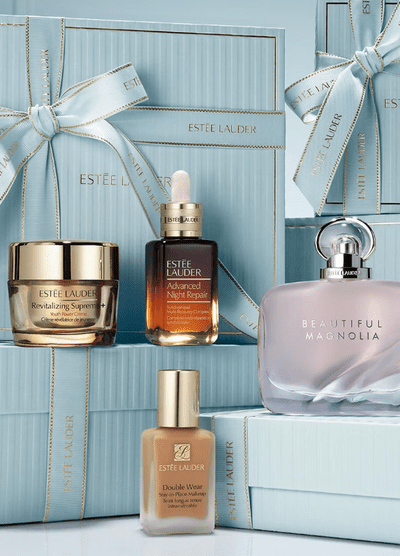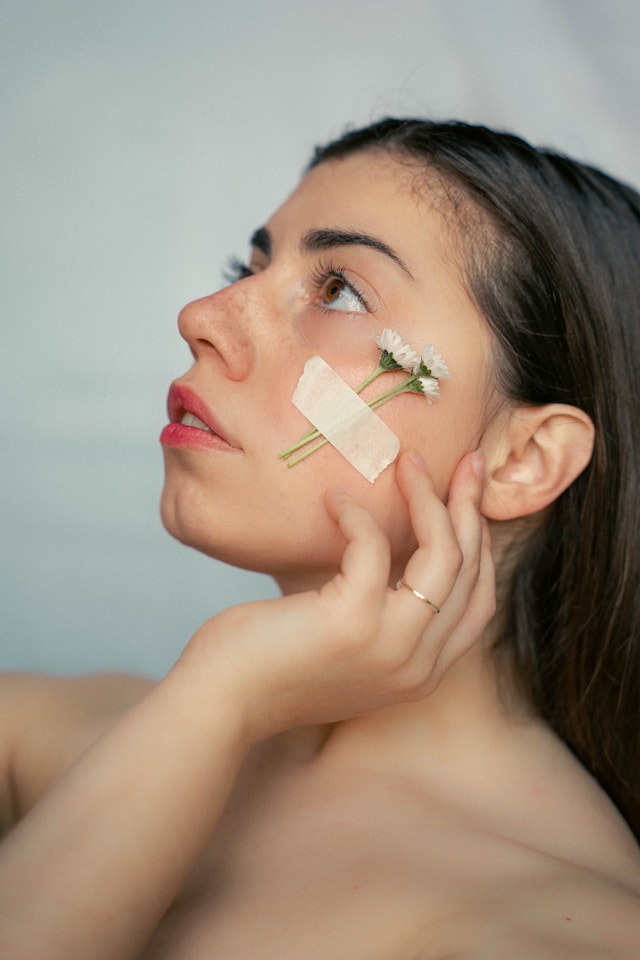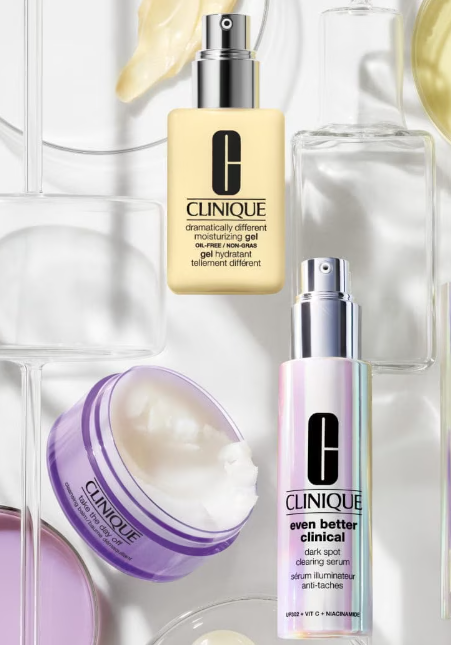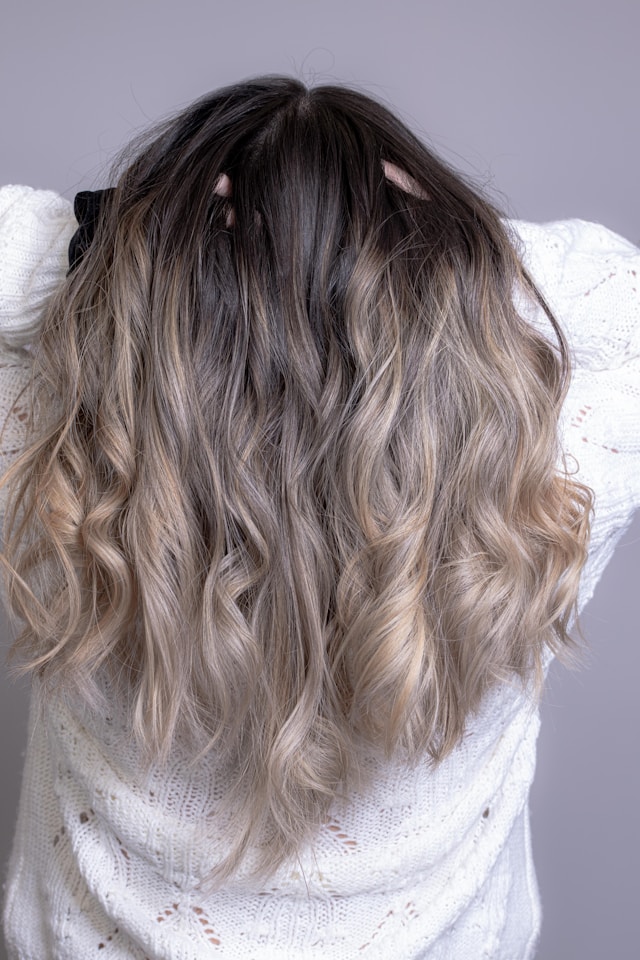Skincare has many tips and tricks in it. There is a lot of information out there, and it’s easy to believe in myths that can lead you in the wrong direction with your routine. In this article, we will clear up some common skincare myths and tell you the truth, so you can have healthier, brighter skin.
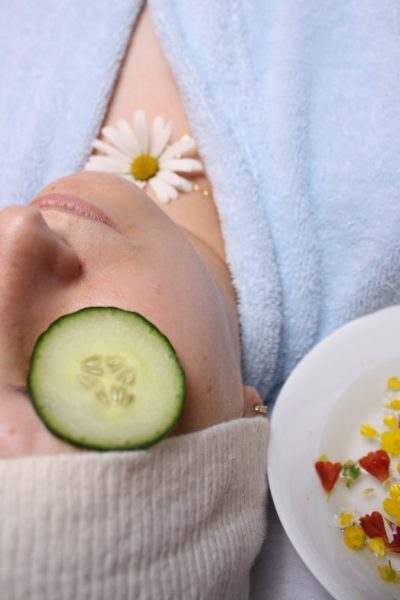
Myth: You shouldn't Exfoliate If You Have Acne
Exfoliation is significant for any skin type, even those prone to acne, as it eliminates dead skin cells that clog pores and cause pimples. But the kind of exfoliation is important. Instead of using rough scrubs that can make acne worse, choose mild chemical exfoliants like salicylic acid or glycolic acid. These acids dive deep into your skin, breaking down dead skin cells and extra oil.
This clears out pores and helps to lessen acne. Using these ingredients regularly to scrub your skin can help make it feel and look better over time, giving you clearer and smoother skin. It’s important to add exfoliation to your routine gently and not do it too often because too much can irritate your skin and damage its protective barrier.
Myth: Washing Your Face Too Much Is Good
Utilizing an excess of cleanser all over can strip away its natural oils, prompting dryness, and disturbance, and possibly making your skin produce more oil, making it much oilier and more likely to get pimples. For most people, washing their face twice daily once in the morning and once at night is enough.
If you have oily skin, it’s vital to pick a delicate cleanser that doesn’t stop pores but at the same time controls oil without drying out your skin. Keep away from hot water, as it can dry and irritate your skin. Instead, utilize warm water for washing to clean it without harming its natural moisture.
Myth: Just Drinking Water Isn't Enough to Hydrate Your Skin
Drinking water is important for your health, but just drinking water might not be enough to keep your skin moisturized. Keeping your skin hydrated means taking care of the protective layer that keeps moisture in. Using skincare products on your skin is very important in this process. Moisturizers that have ingredients like hyaluronic acid, glycerin, and ceramides help pull water into your skin and keep it moist, making your skin look full and hydrated.
Keeping it hydrated from the outside, these ingredients remove moisture from the air and your skin’s deeper layers. To get the best results, it’s good to use both hydrating serums and moisturizers, especially in dry or cold weather where skin can lose moisture fast.
Myth: More Product Means Better Results
Utilizing too much of an item can prompt skin issues like irritation, clogged pores, or waste. Utilizing an excessive number of items can cause issues like breakouts or sensitivity. Just a pea-sized amount is required for your face with most skincare items. Using the product as suggested helps you enjoy the benefits without stressing your skin. Putting your products in the right order is vital.
Start with light, water-based products, and then use thicker creams or oils.This helps each product soak in better and work more effectively. Always keep in mind that taking care of your skin is more about being regular and patient than using a lot of products.
Myth: With Sensitive Skin, You Can’t Utilized Retinol
Retinol can irritate sensitive skin, however, it can still be utilized. The important thing is to begin slowly and pick a product with a low amount of retinol, like 0. 25% to 05%, to reduce any irritation. You can also help prevent irritation from retinol by putting on a layer of moisturizer first.
Slowly using retinol more often can help sensitive skin get good effects, like reducing fine lines, improving texture, and boosting collagen, without causing too much irritation. It’s important to start using retinol slowly. Try utilizing it once or twice a week at first, and then increase how often you use it as your skin becomes acclimated to it.
Myth: DIY Skincare Remedies Are Always Safe
Many homemade skincare solutions use things you can find in your kitchen, but not all of them are safe or good for your skin. For instance, ingredients like baking soda or vinegar can be too strong and may upset your skin’s natural balance, causing irritation or harm. Some natural ingredients can cause allergies, burns, or other problems, especially if they are used in the wrong way.
Before trying any homemade skin care solutions, it’s vital to do careful research or talk to a skin doctor. Natural ingredients can be helpful, but it’s important to use them the right way and know how they might affect your skin. Using skincare products that have been tested and approved by skin doctors is usually a safer and better way to reach your skincare goals.
Myth: Night Creams Are Just a Marketing Gimmick
Unlike day creams, night creams assist in overnight skin healing. A good night cream can help by keeping your skin hydrated, increasing collagen production, and providing antioxidants that protect against damage. Night creams are usually lighter and don’t moisturize as much as regular creams.
They contain ingredients that work best at night when your skin is protected from pollution and sunlight. Not using a night cream means you might miss out on its benefits, like helping with dry skin, small lines, and uneven skin color.
Myth: The More You Scrub, the Cleaner Your Skin Gets
Scrubbing your skin hard can cause more problems than benefits. Exfoliating too much or scrubbing too hard can damage your skin’s protective layer, irritate, and redness, and make your skin more sensitive. This can make your skin more likely to get hurt, infected, or have pimples.
Using gentle cleansers and scrubs that are right for your skin type is better for keeping your skin clean and healthy without hurting it. Using gentle movements and picking scrubs with small particles or gentle chemical treatments can help you clean your skin well without hurting it. The aim is to clean and dispose of dead skin without harming the skin’s protective layer.
Conclusion
Knowing the truth about popular skincare myths can greatly improve the health and look of your skin. By clearing up these misconceptions, you can make better choices about your skincare routine, making sure it works well for you and fits your specific needs.
Keep in mind that skincare isn’t the same for everyone what’s best for your skin might be different from what works for someone else. Be consistent, and patient, and use skin-type-right products to get clear, healthy skin.
